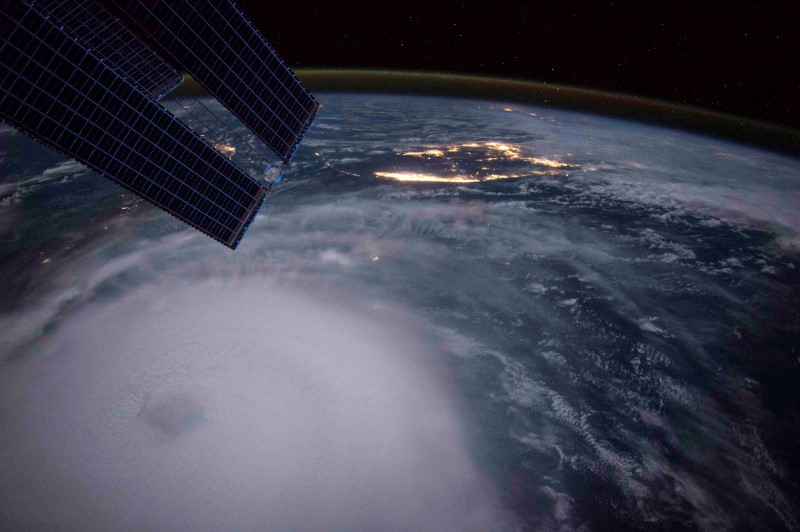(Bloomberg) -- Tropical Storm Beta is flooding southeastern Texas as it grinds toward the shore, where it will linger for days, pounding the coast with heavy rain as it meanders toward Louisiana.
The center of Beta has crossed the Texas coast near the southern end of Matagorda Peninsula, according to an advisory from the National Hurricane Center at midnight New York time. The storm’s worst rains may occur in eastern Louisiana, with the possibility tornadoes near the coastal Texas or Louisiana areas.
“The tropical storm should move just inland along the central Texas coast overnight, but it is expected to become nearly stationary on Tuesday,” Daniel Brown, a National Hurricane Center meteorologist, wrote in his forecast. Earlier, another meteorologist Stacy Stewart said the combination of a dangerous storm surge and the tide will cause normally dry areas near the coast to be flooded by rising waters moving inland from the shoreline.
Some areas could get as much as 15 inches (38 centimeters) of rain, and Beta could raise ocean levels along the Texas coast, including pushing water levels 2 to 4 feet higher in Galveston Bay and the Sabine Pass. Beta has top winds of 45 miles (72 kilometers) per hour, and according to an earlier advisory, is expected to weaken gradually until it completely falls apart over northern Mississippi by Friday.
The storm won’t be a repeat of Hurricane Harvey, which caused catastrophic flooding in Houston in 2017. The fourth-largest U.S. city could dodge any serious impacts because of the dry air around Beta’s core, which has sapped it of strength. Beta won’t have Harvey’s winds or record-breaking rains.
Beta is the Atlantic’s 23rd storm for this year, the second-most active season in records going back to 1851. So many storms have formed that the hurricane center has used up all the names on its official list and has begun designating new storms with Greek letters. Beta will also be the ninth storm to hit the U.S. this year, tying a record set in 1916, said Phil Klotzbach, lead author of the Colorado State University seasonal forecast.
City and county officials have called for a voluntary evacuation of residents in the west end of Galveston, Texas, as well as on the Bolivar Peninsula across the opening to the bay from the city, where an emergency has been declared.
Widespread flooding was already occurring along the Texas coast, with some streets in Galveston underwater, Charles Peek, a reporter with the Weather Channel, said in a Tweet.
While Beta will strike along the central Texas coast, the worst of its rain will probably occur across Louisiana, said Ryan Truchelut, president of WeatherTiger LLC in Tallahassee. It’s likely that 3 to 6 inches (8 to 15 centimeters) of rain will fall across Louisiana for days as Beta’s core drifts up the Texas coast, he said.
Beta has weakened so much it won’t cause many issues for onshore refineries and any interruptions offshore won’t last long.
“The overall story is the impacts we feared would be greater are far less this morning,” said Jim Rouiller, lead meteorologist at the Energy Weather Group. “Louisiana will see the lion’s share of the rainfall. As far as the impacts, the rigs will be up and running in a couple of days and the refineries won’t have to curtail operations.”
Across the Gulf, nearly 8.4% of offshore oil production and 6% of natural gas remains shut in following Hurricane Sally, which struck Alabama last week, according to the Bureau of Safety and Environmental Enforcement. More than 3.6% of offshore platforms remain evacuated.
In addition to Beta, Hurricane Teddy is churning in the central Atlantic. Teddy was a little stronger, according to an advisory at 10 p.m. New York time, and is expected to transition to a powerful post-tropical cyclone as it moves near or over portions of Atlantic Canada late Tuesday through Thursday.
Teddy is also forecast to bring very large swells to parts of Bermuda, the Leeward Islands, the Greater Antilles, the Bahamas, the U.S. east coast and Atlantic Canada during the next few days.
(Updates throughout with new details on Beta, Teddy.)
©2020 Bloomberg L.P.
